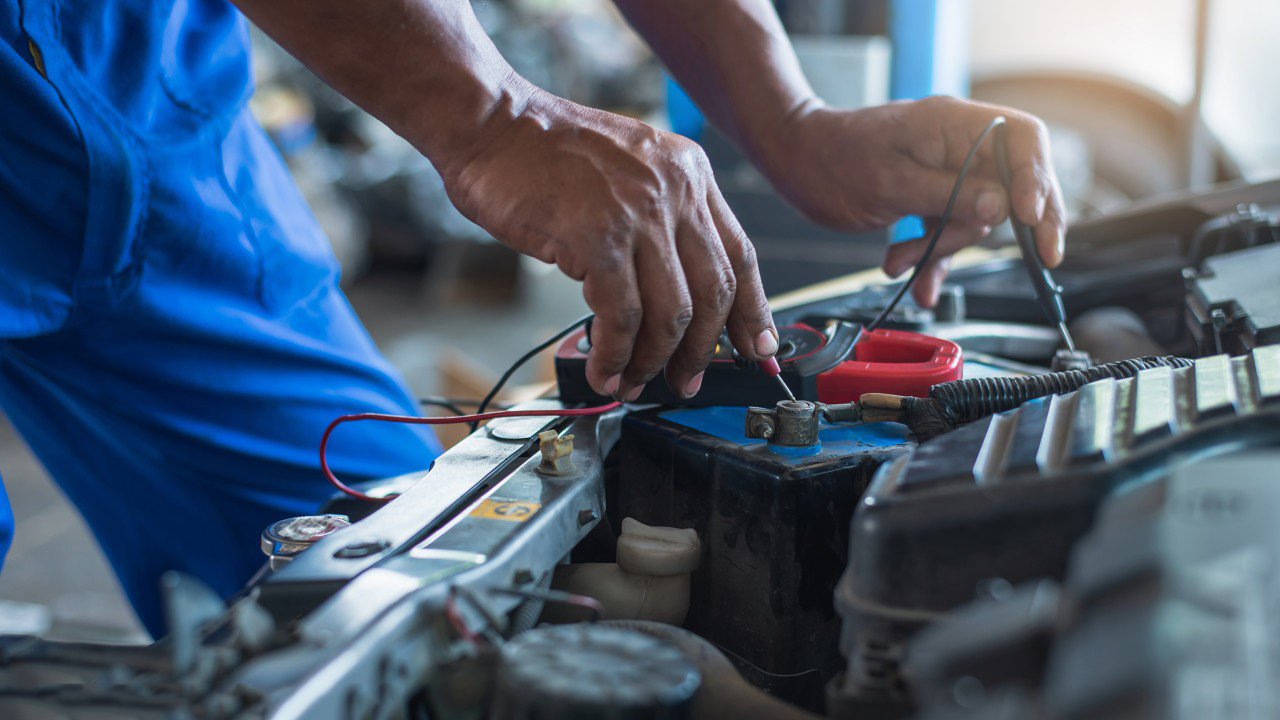Lithium Iron Phosphate (LiFePO4) batteries have become increasingly popular in recent years due to their unique advantages over traditional battery chemistries. Known for their long cycle life, safety, stability, and environmental benefits, LiFePO4 batteries are widely used in electric vehicles (EVs), solar energy storage systems, marine applications, RVs, and more. However, one common question that arises among users is whether a special charger is required for LiFePO4 batteries.
The short answer is yes, it is highly recommended to use a charger specifically designed or compatible with LiFePO4 batteries to ensure safety, efficiency, and optimal performance. In this article, we will delve into the reasons behind this recommendation, explore the differences between chargers for different battery chemistries, and provide practical insights on choosing the right charger for your LiFePO4 battery.
1. Why Charging Matters for LiFePO4 Batteries
To understand why a special charger is necessary for LiFePO4 batteries, it is essential to first grasp the unique characteristics of this battery chemistry and how it responds to the charging process.
Key Features of LiFePO4 Batteries
LiFePO4 batteries have several characteristics that set them apart from other lithium-ion batteries such as lithium cobalt oxide (LiCoO2) or lithium manganese oxide (LiMn2O4), as well as lead-acid and nickel-cadmium batteries:
·Higher Nominal Voltage: LiFePO4 batteries typically have a nominal voltage of around 3.2V per cell, compared to 3.6V or 3.7V for other lithium-ion batteries. This difference affects how the battery is charged and what voltage levels are needed.
·Flat Voltage Curve: One of the most notable features of LiFePO4 batteries is their flat voltage curve during discharge. This means the voltage remains relatively stable throughout most of the discharge cycle, making it difficult to estimate the battery’s state of charge (SOC) without precise monitoring.
·Longer Cycle Life: LiFePO4 batteries can endure thousands of charge-discharge cycles without significant degradation, but this longevity is only maintained if the battery is charged correctly.
·Thermal Stability and Safety: These batteries are known for their excellent thermal and chemical stability, reducing the risk of overheating and fire. However, improper charging can compromise safety, potentially leading to damage or reduced battery lifespan.
Given these features, it’s crucial to understand that charging a LiFePO4 battery is different from charging other battery chemistries. Using the wrong charger can result in undercharging, overcharging, reduced battery performance, or even damage to the battery.
2. Differences Between LiFePO4 Chargers and Other Battery Chargers
Not all battery chargers are created equal, and this holds true for LiFePO4 batteries. Chargers designed for lead-acid, nickel-cadmium, or other types of lithium-ion batteries are not necessarily compatible with LiFePO4 batteries. Here’s a breakdown of the key differences:
Voltage Differences
·Lead-Acid Battery Chargers: Lead-acid batteries typically have a nominal voltage of 12V, 24V, or 48V, and their charging process involves specific stages, such as bulk, absorption, and float charging. The float charging stage, where the battery is continuously topped off at a lower voltage, can be harmful to LiFePO4 batteries, which don’t require float charging.
·Lithium-Ion Battery Chargers (LiCoO2, LiMn2O4): These chargers are designed for lithium-ion batteries with a higher nominal voltage (3.6V or 3.7V per cell). Charging a LiFePO4 battery with these chargers can result in overcharging, as LiFePO4 cells have a lower fully charged voltage of 3.65V per cell, while other lithium-ion cells charge up to 4.2V.
Using a charger designed for a different chemistry can lead to incorrect voltage cut-offs, overcharging, or undercharging, all of which reduce the performance and lifespan of the battery.
Charging Algorithm Differences
LiFePO4 batteries require a specific constant current/constant voltage (CC/CV) charging profile:
1.Bulk Charge: The charger delivers a constant current until the battery reaches a specific voltage (usually 3.65V per cell).
2.Absorption Phase: The charger maintains a constant voltage (usually 3.65V per cell) and reduces the current as the battery nears full charge.
3.Termination: The charging process is stopped once the current drops to a predetermined low level, preventing overcharging.
In contrast, chargers for lead-acid batteries often include a float charging phase, where the charger continuously applies a low voltage to keep the battery fully charged. This stage is unnecessary and even detrimental for LiFePO4 batteries, as they do not benefit from being kept at a topped-off state.
Protection Circuitry
LiFePO4 batteries generally include a Battery Management System (BMS), which protects the battery from overcharging, over-discharging, and short circuits. While the BMS offers a layer of protection, it’s still important to use a charger with built-in safeguards specifically for LiFePO4 batteries to ensure optimal charging conditions and prevent unnecessary strain on the BMS.
3. The Importance of Using the Correct Charger for LiFePO4 Batteries
Safety
Using the right charger is crucial for ensuring the safety of your LiFePO4 battery. Overcharging or using a charger designed for a different chemistry can cause overheating, swelling, and even fire in extreme cases. Although LiFePO4 batteries are considered safer than other lithium-ion batteries, especially in terms of thermal stability, incorrect charging practices can still pose safety risks.
Battery Longevity
LiFePO4 batteries are known for their long cycle life, but this longevity can be compromised if the battery is repeatedly overcharged or undercharged. A charger specifically designed for LiFePO4 batteries will help maintain the correct voltage levels, ensuring that the battery can achieve its full lifespan, which can range from 2,000 to over 5,000 charge cycles.
Optimal Performance
Charging a LiFePO4 battery with the correct charger ensures that the battery operates at its peak performance. Incorrect charging can lead to incomplete charging cycles, resulting in reduced energy storage capacity and inefficient power delivery.
4. How to Choose the Right Charger for Your LiFePO4 Battery
When selecting a charger for your LiFePO4 battery, there are several factors to consider to ensure compatibility and safety.
Voltage and Current Ratings
·Voltage: Ensure that the charger matches the nominal voltage of your battery pack. For example, a 12V LiFePO4 battery typically requires a charger with an output voltage of around 14.6V (3.65V per cell for a 4-cell battery).
·Current: The charging current should also be suitable for your battery’s capacity. A charger with too high a current can cause overheating, while one with too low a current will result in slow charging. As a general rule, the charging current should be around 0.2C to 0.5C of the battery’s capacity. For instance, a 100Ah battery would typically be charged at 20A to 50A.
LiFePO4-Specific Charging Algorithm
Ensure that the charger follows a constant current/constant voltage (CC/CV) charging profile, without a float charging stage. Look for chargers that specifically mention compatibility with LiFePO4 batteries in their specifications.
Built-In Safety Features
Choose a charger with built-in safety features such as:
·Overvoltage Protection: To prevent overcharging by automatically stopping or reducing charging when the battery reaches its maximum voltage.
·Overcurrent Protection: To prevent excessive current from damaging the battery.
·Temperature Monitoring: To prevent overheating during the charging process.
Compatibility with Battery Management System (BMS)
LiFePO4 batteries typically come with a BMS to manage voltage and current levels and protect against overcharging and over-discharging. The charger you select should be compatible with the BMS to work in tandem, ensuring a safe and efficient charging process.
5. Can You Use a Lead-Acid Charger for LiFePO4 Batteries?
In some cases, it is possible to use a lead-acid charger to charge a LiFePO4 battery, but only under certain conditions. Many lead-acid chargers are designed with multiple charging profiles, including one for lithium-ion batteries, which may make them suitable for LiFePO4 batteries. However, there are important considerations:
·No Float Charging: The lead-acid charger should not have a float charging stage when charging LiFePO4 batteries. If float charging is part of the charger’s cycle, it could damage the battery.
·Correct Voltage: The charger must be able to provide the correct charging voltage (around 3.65V per cell). If the charger’s voltage exceeds this level, it could lead to overcharging.
If the lead-acid charger does not meet these criteria, it is best not to use it for LiFePO4 batteries. A dedicated LiFePO4 charger will always be the safest and most reliable option.
6. What Happens if You Use the Wrong Charger?
Using a charger not designed for LiFePO4 batteries can result in several potential issues:
·Overcharging: If the charger applies a voltage higher than 3.65V per cell, it can cause overcharging, which may lead to excessive heat, swelling, or even thermal runaway in extreme cases.
·Undercharging: A charger with insufficient voltage or current may not fully charge the battery, leading to reduced performance and shorter runtime.
·Battery Damage: Repeatedly using an incompatible charger can cause irreversible damage to the battery, reducing its capacity, efficiency, and lifespan.
Conclusion
To answer the question, do you need a special charger for a LiFePO4 battery? — yes, it is highly recommended to use a charger that is specifically designed or compatible with LiFePO4 batteries. These batteries have unique charging requirements, including specific voltage levels and charging algorithms that differ from other lithium-ion and lead-acid batteries.
Using the correct charger not only ensures the safety and longevity of the battery but also helps maintain its optimal performance. Whether you’re using LiFePO4 batteries in electric vehicles, solar energy storage systems, or portable electronics, investing in a suitable charger is essential for getting the most out of your battery.
Always check the specifications of both the battery and the charger, ensuring that the charger matches the voltage and current requirements of your LiFePO4 battery and follows the correct charging profile. With the right charger, your LiFePO4 battery will continue to provide reliable, safe, and efficient power for years to come.
Post time: Sep-14-2024









